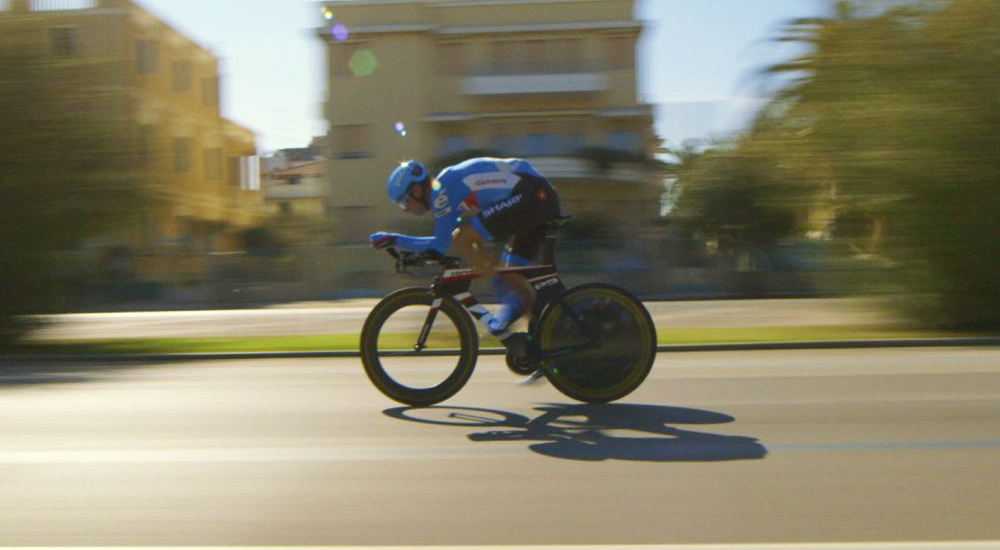David Millar was basically the Lance Armstrong of the UK. A champion of multiple European races, he also led several stages of some Tours de France in the early ’00s, when Armstrong ultimately won an unprecedented seven straight races. Of course, we all know that Armstrong was disgraced after admitting a years-long web of deception about his ingestion of performance-enhancing drugs. Millar was also discovered to have taken PEDs and was banned from the sport from 2004 to 2006. He eventually returned to cycling, hoping to prove to himself and the world that he could still compete at a high level without the drugs.
But Time Trial, while basking in Millar’s triumphs, also shows the ravages of age, particularly on athletes. At 37, his body simply can’t keep up with younger riders and, presumably, those still loading themselves up with banned substances. While the film is less interested in taking shots at the corruption and hypocrisy of the cycling industry, the implication is pretty clear that the sport is hardly “cleaned up.”
While there are brief segments of interviews with a clearly emotional Millar, most of the film is documentary footage from the various time trials to qualify for the 2014 Tour de France. Using high-def cameras, GoPros, dash-cams and other sources, we see all angles of the race, from the agonizing climbs up mountains, the exhilarating rushes down hills and everything in between. It gives us an extremely intimate look at the toll racing takes on a person.
But the movie is at its best when it’s just showing the roads teeming with athletes and their crews. Set to a score by experimental artist Dan Deacon, it’s beautiful and moving, coming closer to an art film like Koyaanisqatsi.
Time Trial is for more than just cycling fans. It’s an exceptional, in-depth look at the bitter end of one man’s dream.

